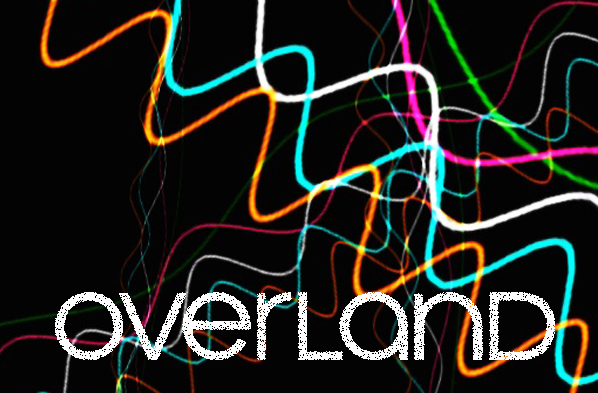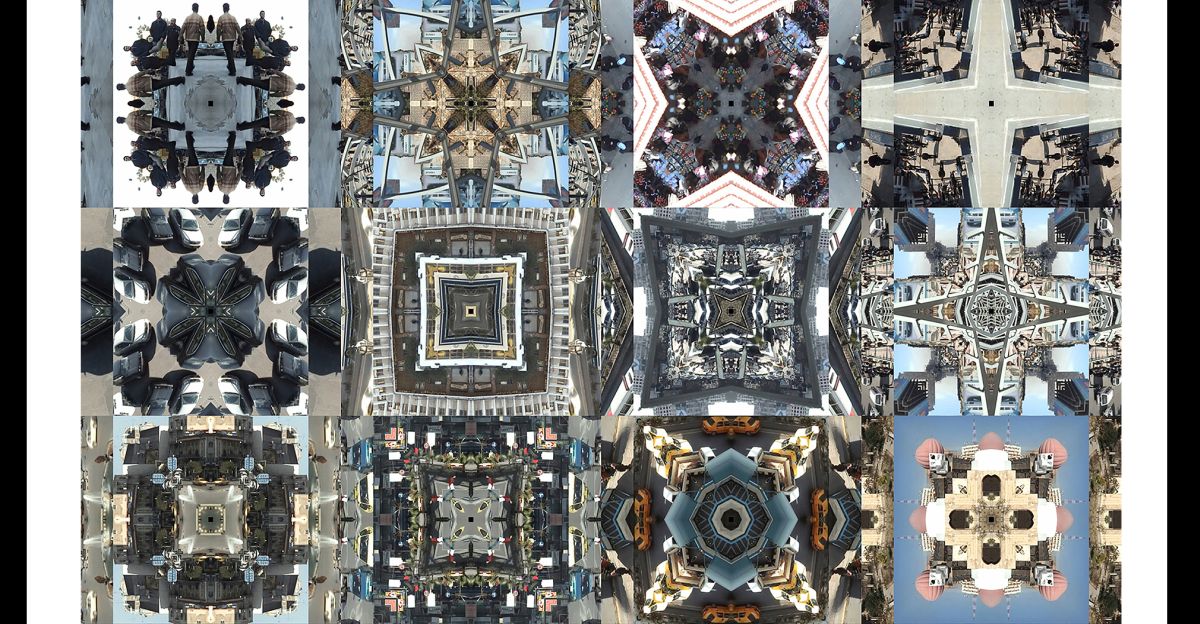This second issue of electronic poetry, Photonic Overland, sees eight more pieces of literature that engage meaningfully with the digital world. Reading through the submissions revealed a diversity of styles, formats and media. Each work, and each work published in this issue, requires exploration, both for the reader and the writer. Discovering not just new works but new ways of making works was part of the pleasure in reading the submissions and so it was an extraordinarily difficult task to select the poems for this edition.
There were some commonalities. The ‘photonic’ in the title is a nod to the importance of the screen in many of the video-based works found in this collection, such as Ian Gibbins’s ‘Editor’s selection’, Pascalle Burton’s ‘Computers consider Maya Deren’ and Panos Couros’s ‘Negative guilt’.
Both ‘Editor’s selection’ and ‘Computer’s consider Maya Deren’ feature synthesised voices: the now-familiar cold tones of software parsing speech. ‘Editor’s selection’ disassembles language in a way that made me the reader feel disassembled along with it, and what that poem does to words, Couros’s ‘Negative guilt’ does to the body.
‘Computer’s consider Maya Deren’, on the other hand, uses computational speech to alter the nature of the poem. The computer acts as both interlocutors of the poem. The computer is both singular and multiple (through the use of different voices) and yet empty of an identity – a back-and-forth between others and also the poem itself, oscillating the viewer/reader between the characters evoked and the computer reading.
In contrast, Peter Wildman’s ‘Modulate a thousand times more’ transforms code into a humanised spoken poem. Declarations merge with variables and the code verbally unravels in exciting and unexpected ways, which made me immediately scrutinise how I read my own code.
Networks are inescapable. Rather than attempt to host all the poems locally, this issue leaves most where they are. Whether apps, websites or videos on video sharing sites, the poems live like extended branches. The poems also draw on their own environments, such as in Christopher Rodley and Andrew Burrell’s ‘Everything Is Going To Be OK :)’, which uses Twitter as both a source and a subject. The crisp, clear text turns casual fragments from social media into poetic interventions.
Beyond the web, Josh Mei-Ling Dubrau and Mark Havryliv’s ‘P[a]ra[pra]xis’ and Mez Breeze and Andy Campbell’s ‘#Carnivast’ are works that are also self-contained apps.
‘#Carnivast’ weaves text-like cloth through environments that appear at times organic and at other times geometric. Text becomes surface and surfaces become texts. At a distance they are alien environments, yet they are constructed in recognisable embedded language.
‘P[a]ra[pra]xis’ is an iPad app that interweaves text into itself. You must use your fingers to make the poem’s text appear. Different actions cause different text to appear and so reading each poem in the ‘P[a]ra[pra]xis’ requires touching the screen to claw out the other meanings and variations present in the work.
Finally, Omar Sakr’s ‘Definitions’ explores personal connections in a poem that rehearses lines against a fixed ‘Love is’. This work lives in a transitional space between print and digital poetry, and is made with TelescopicText, linking Photonic Overland to last year’s Electronic Overland.
I was pleased to discover, when corresponding with all the authors in this collection, that this issue is entirely Australian-based, featuring works from the Northern Territory, Queensland, South Australia and New South Wales. With so many new ways to create, make, write and read poetry developing in this ever-changing and developing age, it is an exciting time for electronic poetry, particularly in an Australian context.



